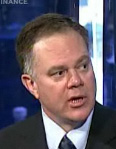In this tenth part of our series on climate science, we explore a new paper outlining a climate scenario that would limit warming to 1.5 °C without relying on negative emission technologies. It does so by detailing numerous pathways that could lead the world toward much lower total primary energy consumption, including a heavy focus on the demand side, quantifying the impact of behavioral changes and different ways of providing energy services, rather than simply focusing on consuming energy.
This doesn’t mean that actually following the pathways outlined in this model will be easy, or that staying under 1.5 degrees of warming is going to happen automatically. In fact, some of the behavioral changes that would be needed might be as difficult as implementing a carbon tax (or, for that matter, implementing CCS at scale). But this outlook does respond to our main complaints with the existing body of climate and energy scenarios—that they generally depend on negative emissions technologies like CCS, and that they don’t adequately take into account measures and policies that are already reducing our energy demand and accelerating the energy transition. Our guest in this episode is one of the co-authors of the paper: Charlie Wilson, a researcher at the Tyndall Centre for Climate Change Research, and an Associate Professor in Energy & Climate Change at the University of East Anglia in the UK. His expertise on consumer adoption of technology, behavior and policy as they relate to energy and climate change mitigation gives him a unique perspective on this research that we think you’ll find illuminating and thought-provoking.
Geek rating: 5
Guest: Dr. Charlie Wilson is a researcher at the Tyndall Centre for Climate Change Research, and a Reader (Associate Professor) in Energy & Climate Change at the University of East Anglia in the UK. His research interests lie at the intersection between technology, behavior and policy in the field of energy and climate change mitigation, working at both a systems level and a micro level.
On Twitter: @TyndallCentre
On the Web:
Charlie Wilson’s page at the University of East Anglia
Charlie Wilson’s page at the Tyndall Centre
Social Influence and Low Carbon Innovations project
Recording date: June 27, 2018
Air date: July 25, 2018






